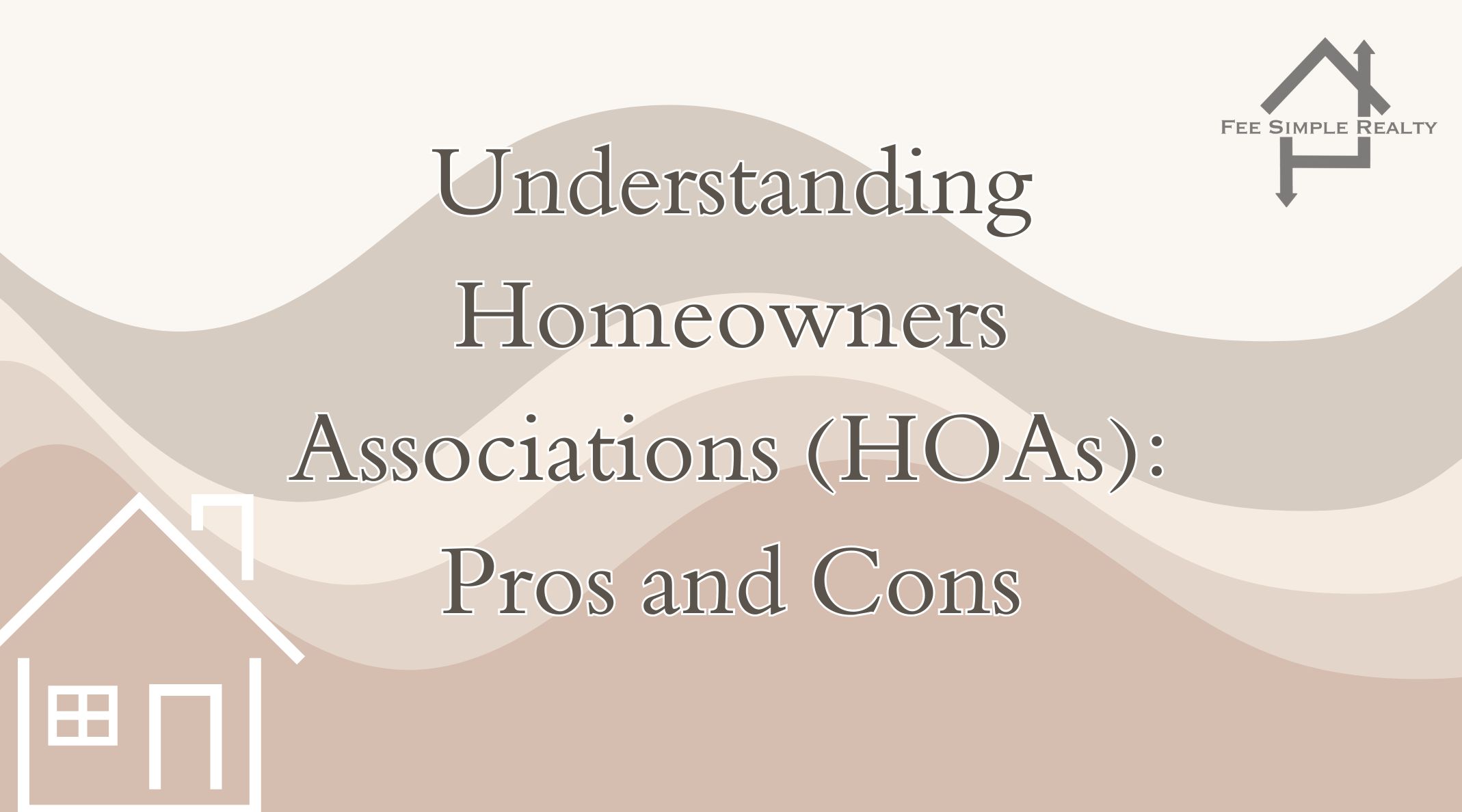Understanding Homeowners Associations (HOAs): Pros and Cons
Homeowners Associations (HOAs) play a significant role in many residential communities, particularly in planned developments, condominiums, and townhouses. If you’re considering buying a property governed by an HOA, it’s essential to understand the benefits and potential drawbacks. This guide will help you with Understanding Homeowners Associations (HOAs): Pros and Cons.
Overview: What is a Homeowners Association?
Definition: A Homeowners Association (HOA) is an organization in a subdivision, planned community, or condominium building that makes and enforces rules for the properties and residents.
The Pros of Homeowners Associations
1. Well-Maintained Common Areas
Simple Explanation: HOAs ensure that common areas are clean and well-maintained.
In-Depth Analysis: One of the primary benefits of an HOA is the maintenance of common areas. This includes landscaping, parks, recreational facilities, and community buildings. Regular upkeep not only enhances the aesthetic appeal but also preserves property values within the community. In regions like Central Florida, well-maintained common areas can be a significant draw for potential buyers.
2. Enhanced Property Values
Simple Explanation: HOAs help maintain or increase property values.
In-Depth Analysis: By enforcing community standards and guidelines, HOAs ensure that all properties are kept in good condition. This consistency can lead to higher property values and a more attractive neighborhood. The rules might include regulations on exterior home appearances, which can prevent any one property from negatively impacting the community’s overall value.
3. Access to Amenities
Simple Explanation: Residents often have access to shared amenities.
In-Depth Analysis: Many HOAs provide access to amenities such as swimming pools, gyms, tennis courts, and clubhouses. These facilities are funded through HOA fees and are available for all residents to use. Such amenities can significantly enhance your quality of life and provide convenient recreational options without leaving the community.
4. Conflict Resolution
Simple Explanation: HOAs can mediate disputes between neighbors.
In-Depth Analysis: An HOA can act as an intermediary in resolving disputes between neighbors, whether they pertain to noise complaints, property boundaries, or maintenance issues. This structured approach to conflict resolution can create a more harmonious living environment.
The Cons of Homeowners Associations
1. Fees and Dues
Simple Explanation: HOAs require regular fees that can add up.
In-Depth Analysis: One of the primary drawbacks of living in an HOA community is the mandatory fees. These dues are used to maintain common areas and amenities, but they can vary significantly from one community to another. In some cases, special assessments may be levied for unexpected repairs or improvements, adding to your financial obligations.
2. Restrictions and Rules
Simple Explanation: HOAs impose rules that can limit personal choices.
In-Depth Analysis: HOAs enforce a range of rules that residents must follow. These can include restrictions on exterior paint colors, landscaping choices, parking regulations, and even pet policies. While these rules aim to maintain the community’s appearance and value, they can also feel restrictive to some homeowners who prefer more freedom with their property.
3. Potential for Mismanagement
Simple Explanation: Not all HOAs are well-managed.
In-Depth Analysis: The effectiveness of an HOA largely depends on its management. Poor management can lead to misallocated funds, neglected maintenance, and unresolved disputes. It’s essential to research an HOA’s reputation and management practices before purchasing a home within its jurisdiction.
4. Limited Privacy
Simple Explanation: HOAs can have rules that impact your privacy.
In-Depth Analysis: Some HOA rules can impact your privacy and autonomy. For instance, regulations about how you use your outdoor spaces or what you can display in your yard can feel intrusive. Understanding these rules and how they might affect your daily life is crucial before moving into an HOA-governed community.
Conclusion
Homeowners Associations offer both advantages and disadvantages. While they can enhance property values, provide amenities, and ensure well-maintained common areas, they also come with fees, rules, and potential management issues. Weighing these pros and cons can help you make an informed decision about whether living in an HOA community is right for you, especially in popular areas like Lakeland, Florida.
Other Related Topics
If you found this information helpful, you might also be interested in learning about the pros and cons of buying a fixer-upper, understanding the role of a real estate attorney in property transactions, or exploring different types of real estate ownership. Stay tuned for more insightful real estate posts!
Contact us today or visit our Instagram | Facebook .
